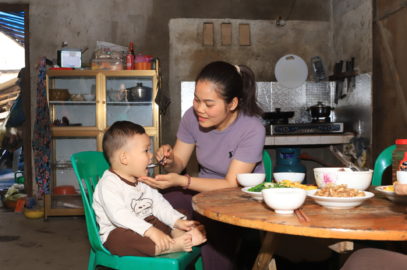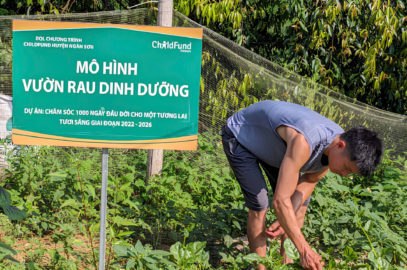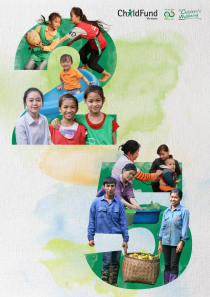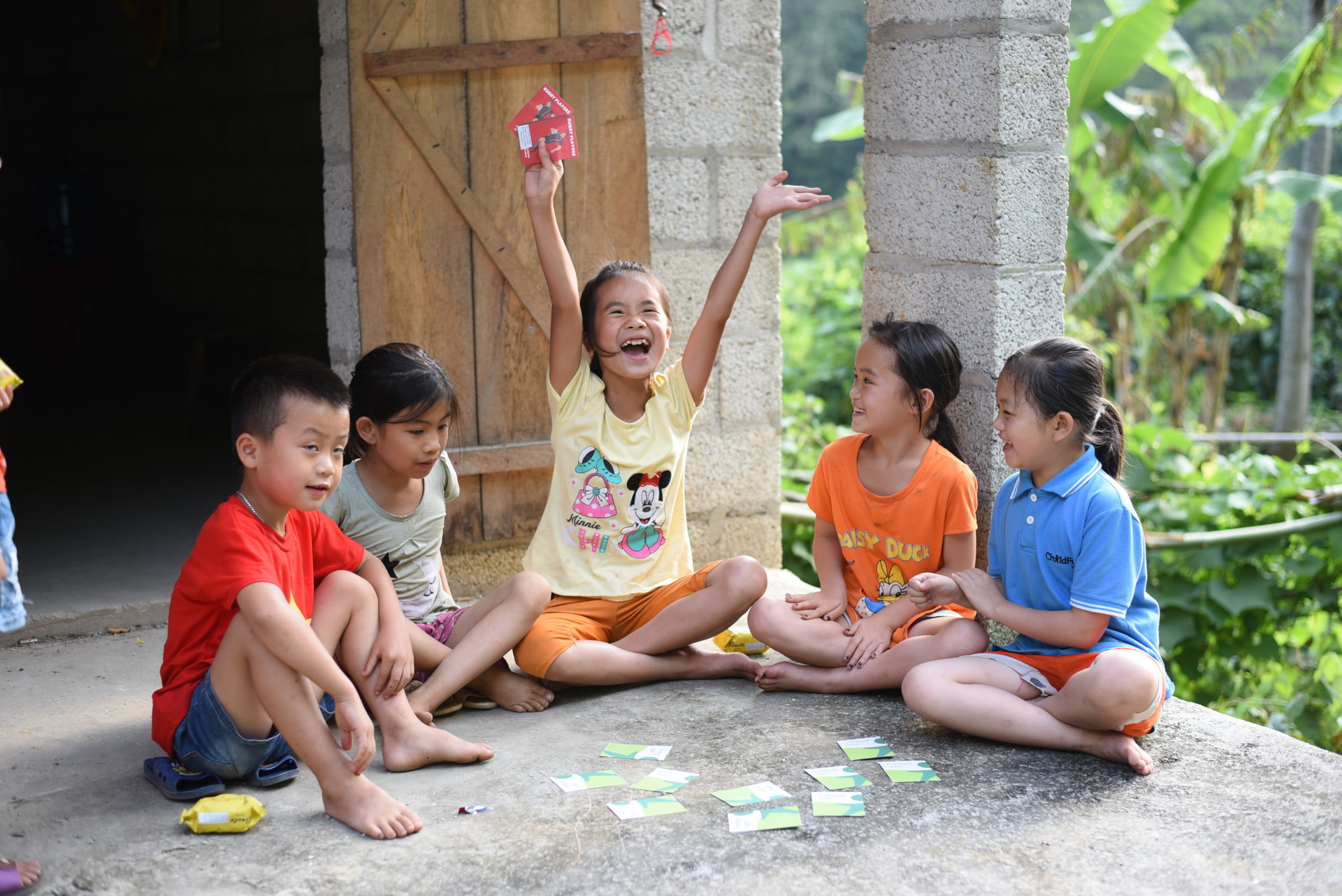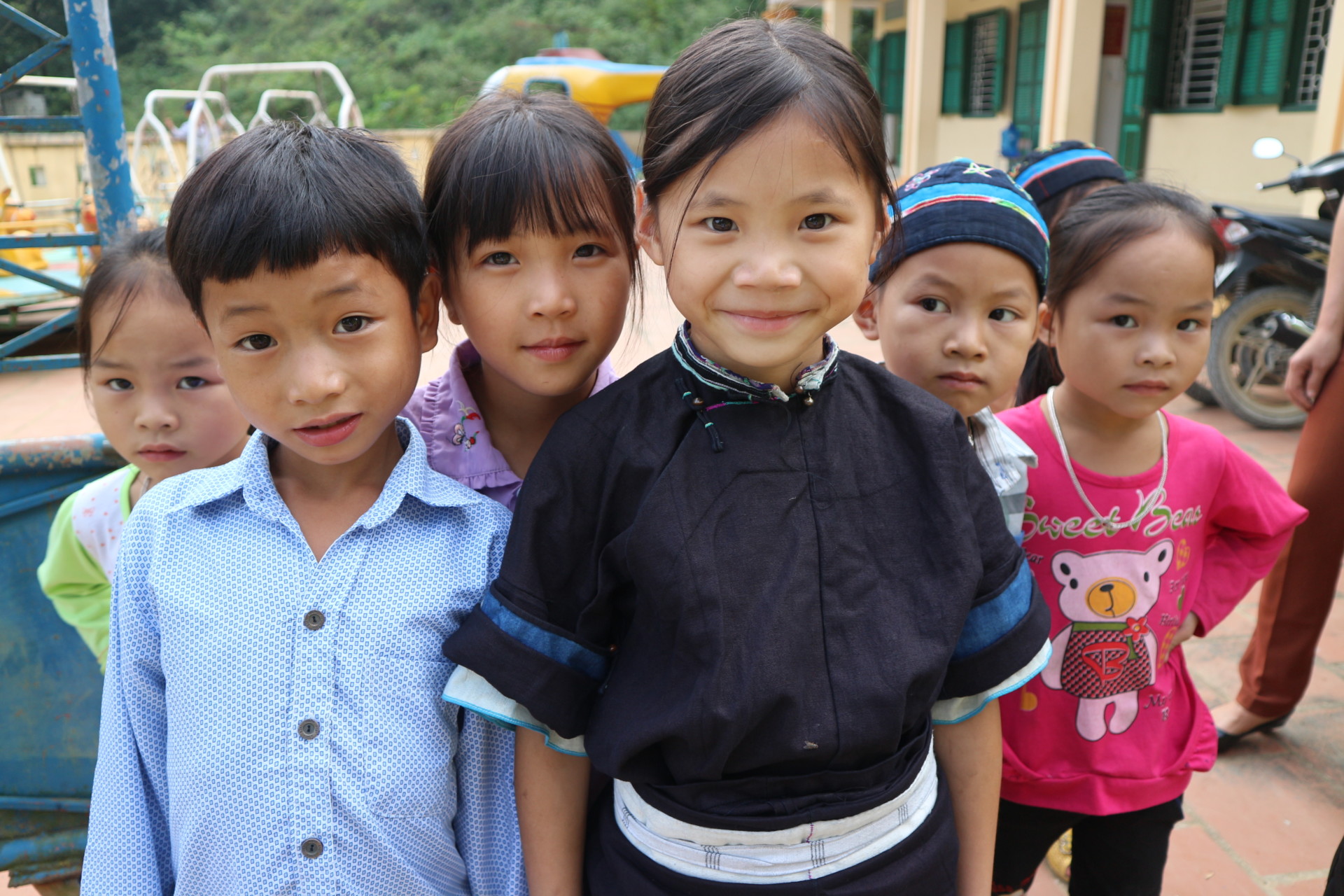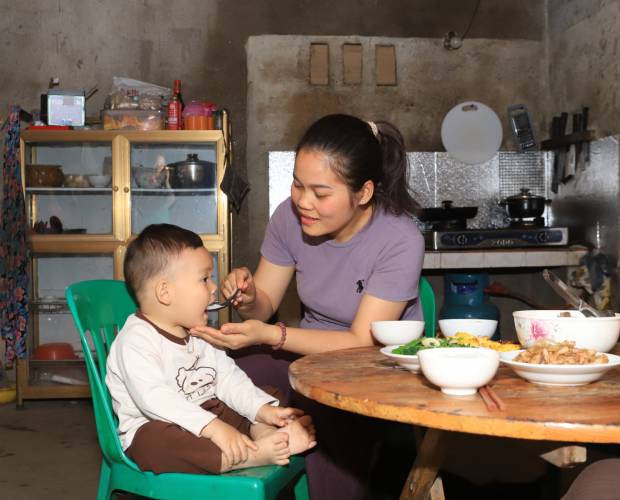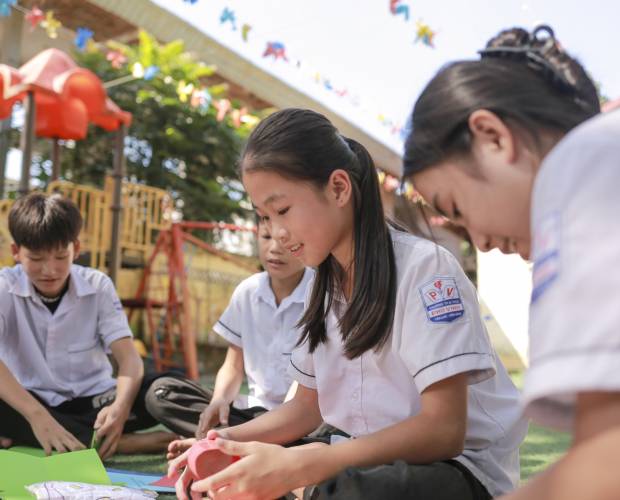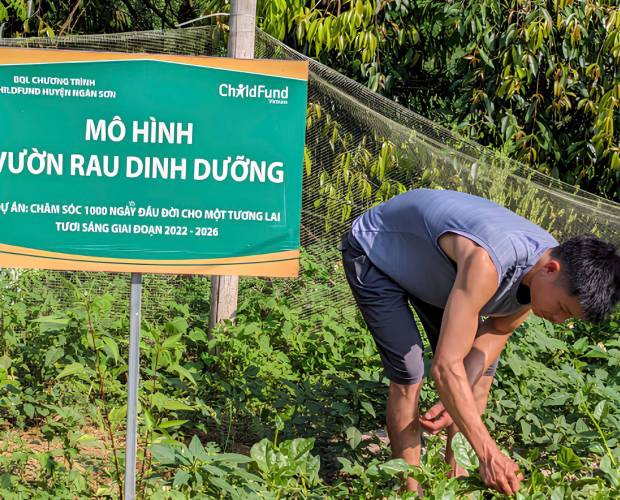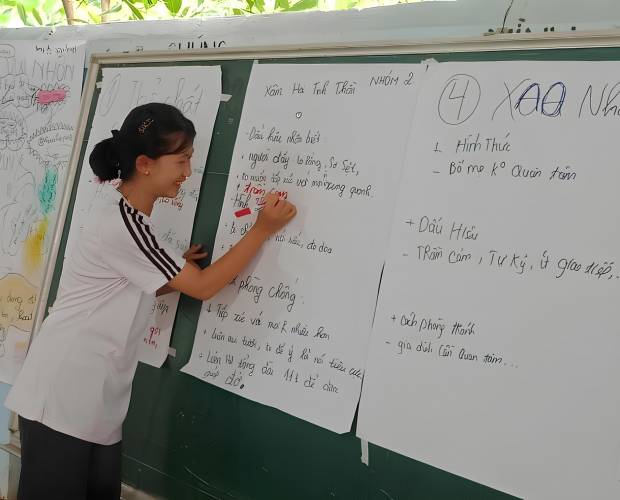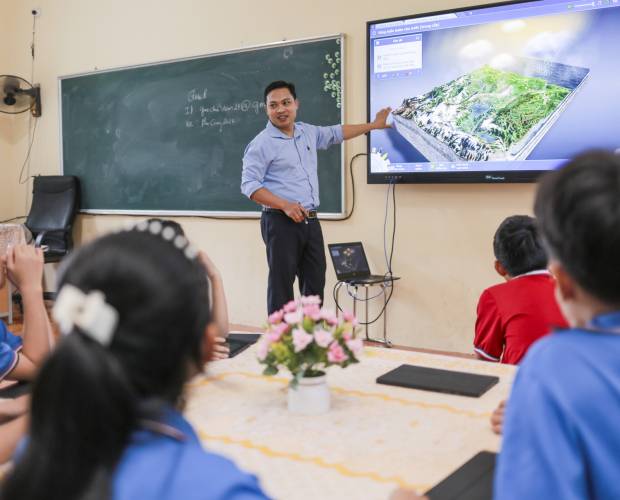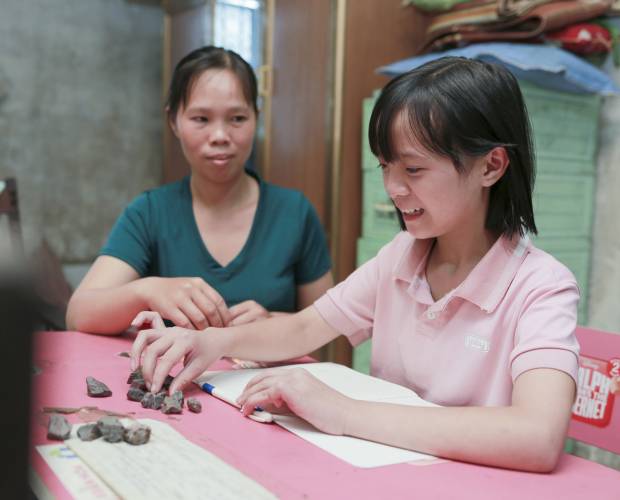I made my first visit to Vietnam early in 2006, soon after I started as CEO of ChildFund Australia. Back then, the dusty highway from the old Hanoi airport seemed to have more cattle than cars on the road, and both were outnumbered by the bicycles and motorbikes. So different today. The country has transformed and ChildFund Vietnam has made a substantial contribution to that transformation, particularly for poor communities in northern mountainous districts.
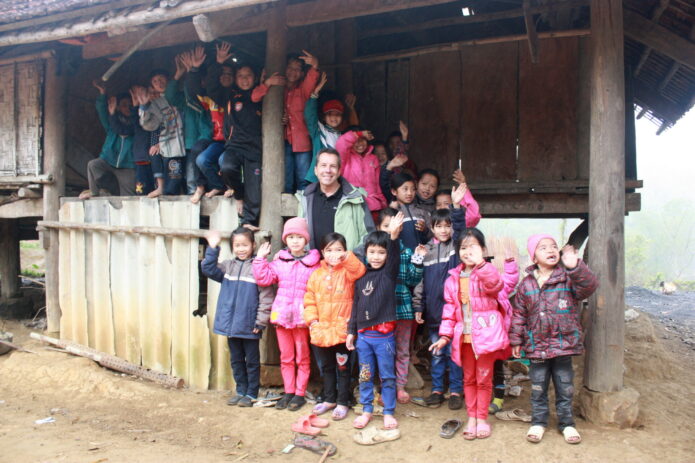
Mr Spence meeting with children in Hoa Binh
In 2006 the small ChildFund Vietnam teams in Hanoi, Hoa Binh and the newly opened Bac Kan office were expertly led by Country Director Peter Walton and were beginning to scale up. Program manager Mr. Ba Lieu took me to visit a range of projects. It was clear that ChildFund’s integrated child-focused, rural development approach was having an impact. Early childhood education, schools, health posts, nutrition, primary healthcare, improved farming practices, micro-finance and capacity-building activities were underway and conditions for children were beginning to improve.
At the same time, extreme poverty and lack of opportunity remained pervasive. Talking with parents, committee officials, representatives of the Women’s Union, children and youth it was evident that malnutrition, preventable illnesses, illiteracy, marginalisation of minority groups and absence of basic services were widespread. The benefits of Vietnam’s extraordinary national economic growth were not reaching outlying communities.
Over the next decade and a half ChildFund Vietnam, with growing investment from across the global ChildFund Alliance following its landmark meeting in Hanoi in 2007, stepped up development efforts. ChildFund extended to more remote communities in Hoa Binh and Bac Kan, and commenced work in Cao Bang, one of Vietnam’s poorest provinces.
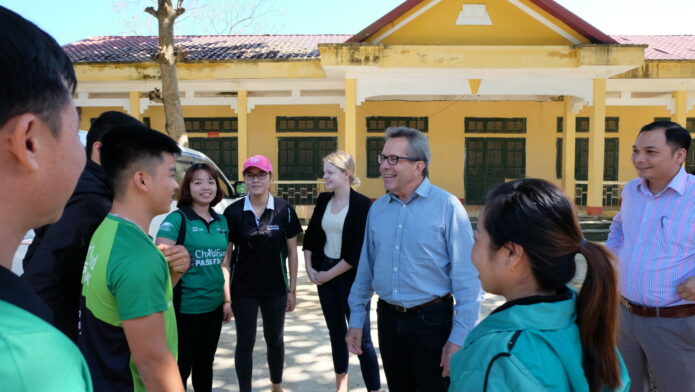
Mr Spence meeting the Pass It Back coaches and players in Kim Boi in Oct 2019
As ChildFund shifted to a stronger sectoral focus in its program approach education, early childhood and healthcare continued as top priorities. Child protection was added and child participation – already a strength of ChildFund Vietnam – was given even greater priority. Successive country directors, Deborah Leaver and Nguyen Thi Bich Lien, and the many valued ChildFund Vietnam colleagues, engaged with local people and, increasingly, in policy reform with central government, to pursue change for children.
ChildFund PassItBack introduced high quality sport-for-development while disability inclusion, youth resilience and active citizenship took on greater importance. Substantial improvements for children and communities were confirmed by official data – and from ChildFund’s Development Effectiveness Framework. My own PhD research (being submitted as I write) examined the emergence of Vietnam’s national child protection system and the influence of international organisations, such as ChildFund. It finds that, while child protection risks remain severe and widespread for children in Vietnam (as elsewhere), a sustained cooperative effort by NGOs, government and local people is building a comprehensive national child protection response. I am proud of ChildFund’s contribution in this area.
I said farewell to ChildFund Vietnam colleagues in late 2019 with deep gratitude for having been able to work with such an amazing team. I also met for a final time with young people in Kim Boi District. I was struck by their confidence, level of education, entrepreneurship, leadership skills, good health and optimistic outlook. These are powerful young leaders who will make a huge contribution to their families, communities and nation.
Nigel Spence
